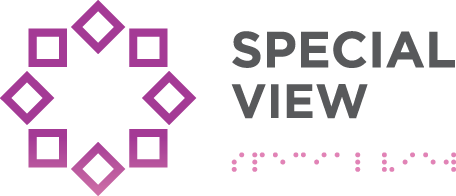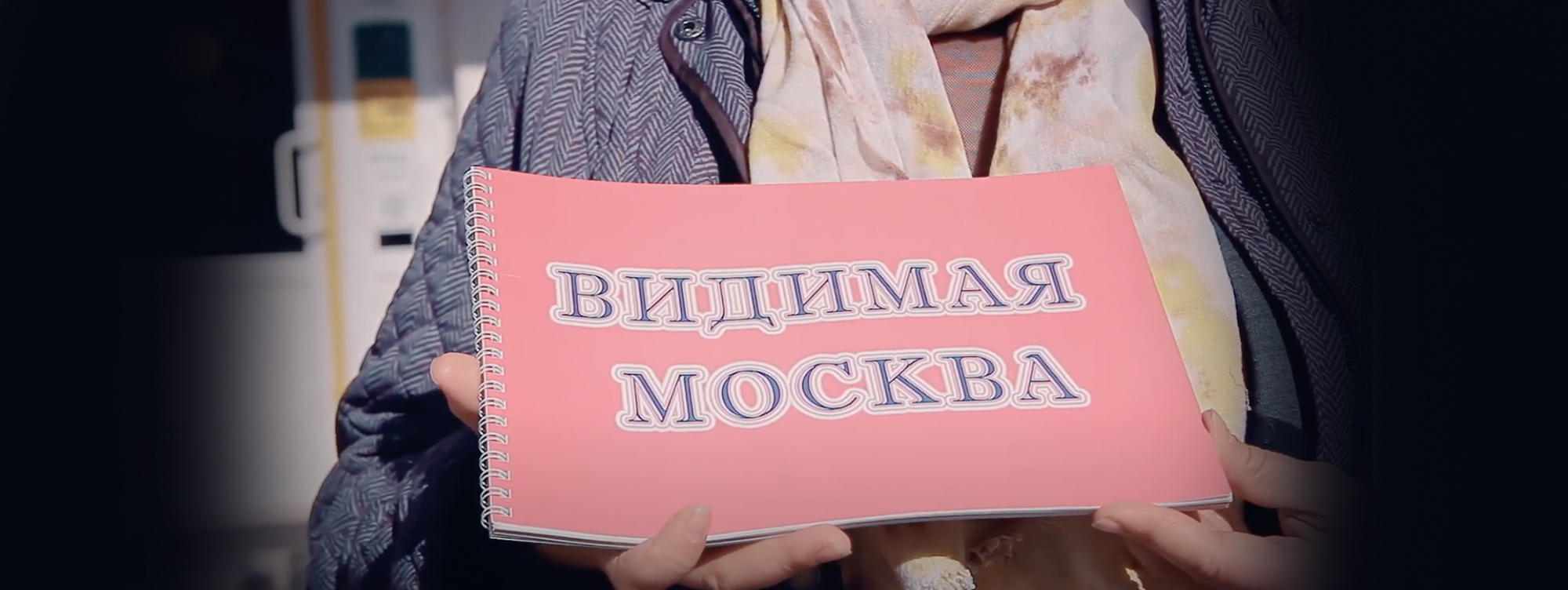People who have lost their eyesight often do not know where to go for help, where to find support, how to get professional training and find a suitable job or a hobby. To solve this problem, the participants of Act With No Barriers program, Galina Dolya and Irina Mikhailova created a guide on organizations specializing in rehabilitation of visually impaired and sightless Moscow citizens. The project was entitled Visible Moscow.
The project is aimed at people with visual impairments, as an aid for employees of sociomedical assessment bureaus, social service centres, multifunctional centres, social institutions and all the persons in charge of routing and navigating people who have found themselves in difficult circumstances.
Galina Dolya, one of Visible Moscow authors, tells Special View about the project.
- Visible Moscow guide was created within Act With No Barriers program. Tell us about the project team: what was the idea that united you, what roles were designated to each member.
- The idea was to improve the process of informing people who have lost their eyesight, on the opportunities of rehabilitation and socialization in Moscow.
At first, there were four of us. Then we were discussing such ways of informing people as creating a special platform for sightless or visually impaired people, or a social dispatching office named SOVA Visible Moscow, or topic-related guide books and so on.
Unfortunately, when the time came to put the project into action, only two members were left: me and Irina Mikhailova, All Russia Association of the Blind veteran. We focused on accumulating data for the Visible Moscow guide, preparing posters and making contacts to create an information network that would be mostly aimed at potential helpers for the sightless and visually impaired persons: their family, neighbors, citizens who care, employees of social institutions and services.
We collected the information together, and Irina was in charge of layout. Together we are distributing the infoproducts we have prepared and scaling up our network.
Audio description: a coloured photo. A poster and a brochure containing the same information are lying against a pale background. At the top, there are phrases written in large multicoloured letters: You will be helped! You will be heard! You will be informed! You will be shown! That one may live a full life in Moscow even with visual impairments". Below this text, there is a picture of a dark-haired young woman wearing dark glasses and a yellow dress, a white cane in her hand. A chestnut-haired man in red T-shirt and blue pants is standing beside her. He is touching the young woman's shoulder and telling her something. Around them there are images of musical instruments, chess, tennis racket and so on.
- Why did you choose this topic?
- The project originated from personal pain. When I lost 80% of my eyesight and got physical disability status (this happened 3 years ago), I had to face the fact that here, in Russia, there was no assistance for the blind or visually challenged after their loss of eyesight.
Yes, I'd heard something about All Russia Association of the Blind (ARAoB), but the information on the net was very confusing. I didn't know what I needed to do first. It would be most convenient if persons receiving documents on their physical disability in medical and social assessment centres could also get a memo with a list of resources that they could use to adapt to their new life conditions more rapidly, or a brochure telling them what are the ways for socialization of such people in certain Moscow neighborhoods and in the city in general.
This was what Irina and I did: we created posters and brochures with information about what steps to take and which organizations to contact in order to take active rehabilitation measures in different spheres.
The posters will be placed upon stands in medical and social assessment bureaus and other Moscow institutions. The poster has a QR code on it. By scanning the code you are directed to the ARAoB website where one can study the guide and select a certain Moscow neighborhood or topic.
I belong to the category of persons with late onset blindness, while Irina has visual impairments since childhood, and she knows a lot about resources, opportunities and places for visually challenged people. We combined my idea and her experience, gathered the required information and as a result we created our guide.
- Could you elaborate on the process of compiling your guide: how did you look for and select the organizations supporting people with visual impairments? Did you have any difficulties searching for information?
- We developed a system of data search and set certain specifications. Using continuous sampling method we searched the Internet for the data we needed. The data was selected based on key words, and after that it was divided into nine topical units. We made phone calls to each of the selected organizations to get more specific information and to present them in our guide in a uniform manner. We were checking the URLs and the contents of the websites we'd found, and at the same time we were gathering all the valuable information for the sightless and visually impaired that we were able to get by word of mouth. We asked our sightless acquaintances where they'd been and how one could get there.
And later all the important information was drawn to us as if we were a magnet. Thus, for example, we found interesting contacts specializing in solutions for the sightless while we were evaluating projects for the Big Challenges 2022 research and technology contest for schoolchildren. Moreover, we used our own experience.
Collecting the data went on for the whole project duration, that is about 6 months. People were eager to assist us, many of them got interested in our work because they understood that the problem we were solving was a serious one.
Audio description: a coloured photo. A woman in a grey jacket is leafing through the guide. The brochure is open at a white page with big red letters reading Visible Moscow. Below it there is a subtitle in smaller letters: "Guide on organizations specializing in rehabilitation and socialization of sightless and visually impaired Moscow citizens and those creating a safe and comfortable environment for their active life".
- What were the forms the guide was issued in?
- The guide exists both in digital and printed forms. We published about 50 copies of the basic pilot version of our guide. We are planning to edit it and supplement it with new current data at least twice a year. There are several forms of its digital version.
Upon request, we can send it to any interested persons. One can also get a paper copy. For that a person should contact Irina or me.
- How and where do you spread the information about your guide?
- We developed a strategy of distributing our product. As a result we sent official letters to central bodies of multifunctional centres, medical and social assessment bureaus, pension fund, social service centres, district libraries and social institutions. Having received their answers, we brought them the required number of copies of our guide or emailed it in digital form.
Moreover, we are telling our acquaintances, media representatives and social network users about our work. We have our own VKontakte account, but at present it is still to be completed.
- How are you going to develop the project? Are you planning to create a similar guide for Russian regions?
- At the moment we are not planning to create a similar guide for the regions, because it is a totally different line of work. We are going to update Visible Moscow twice a year. This will be done beyond Act With No Barriers program and with no financial support. Of course, we will be glad if our project attracts investors.


